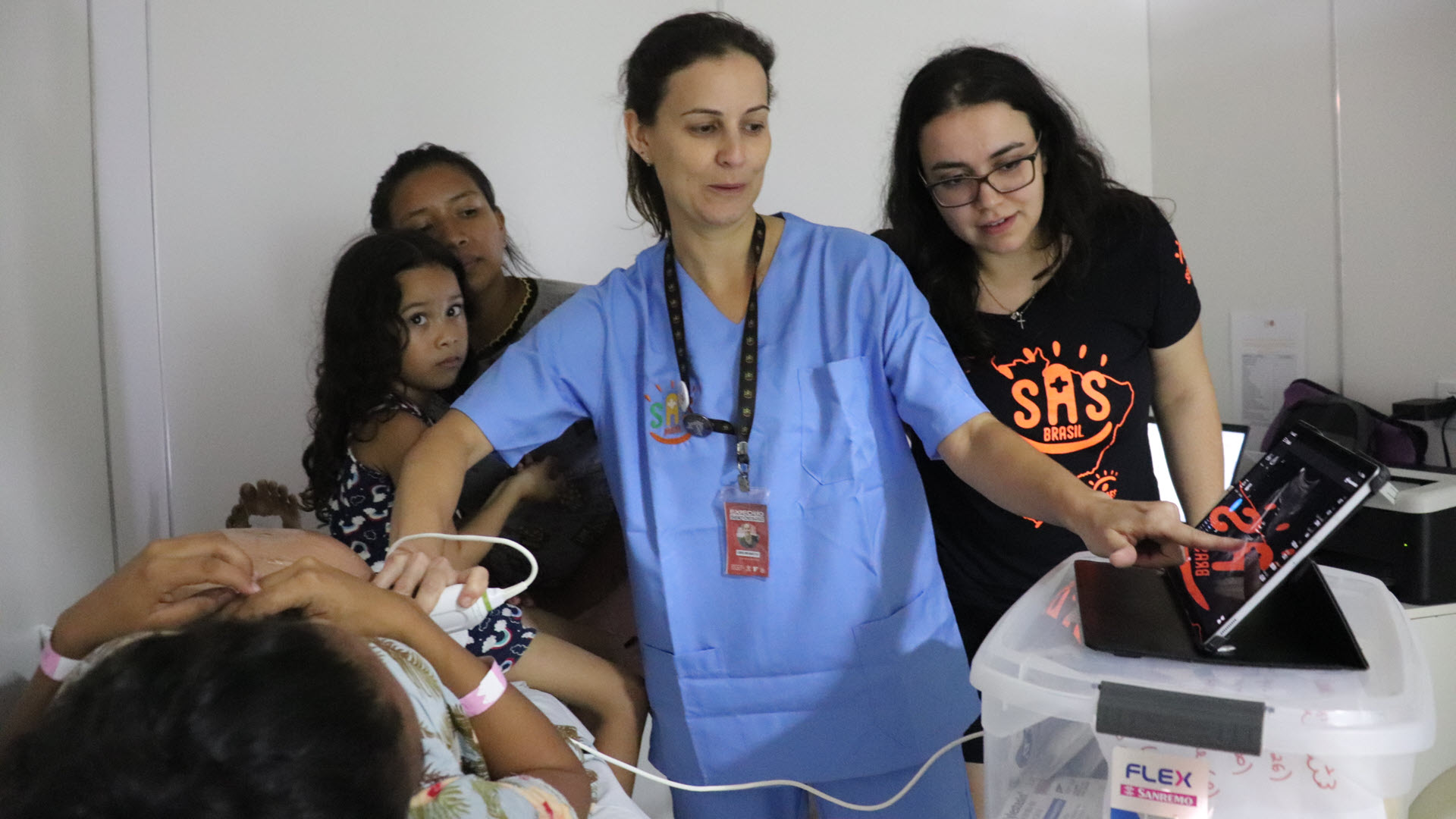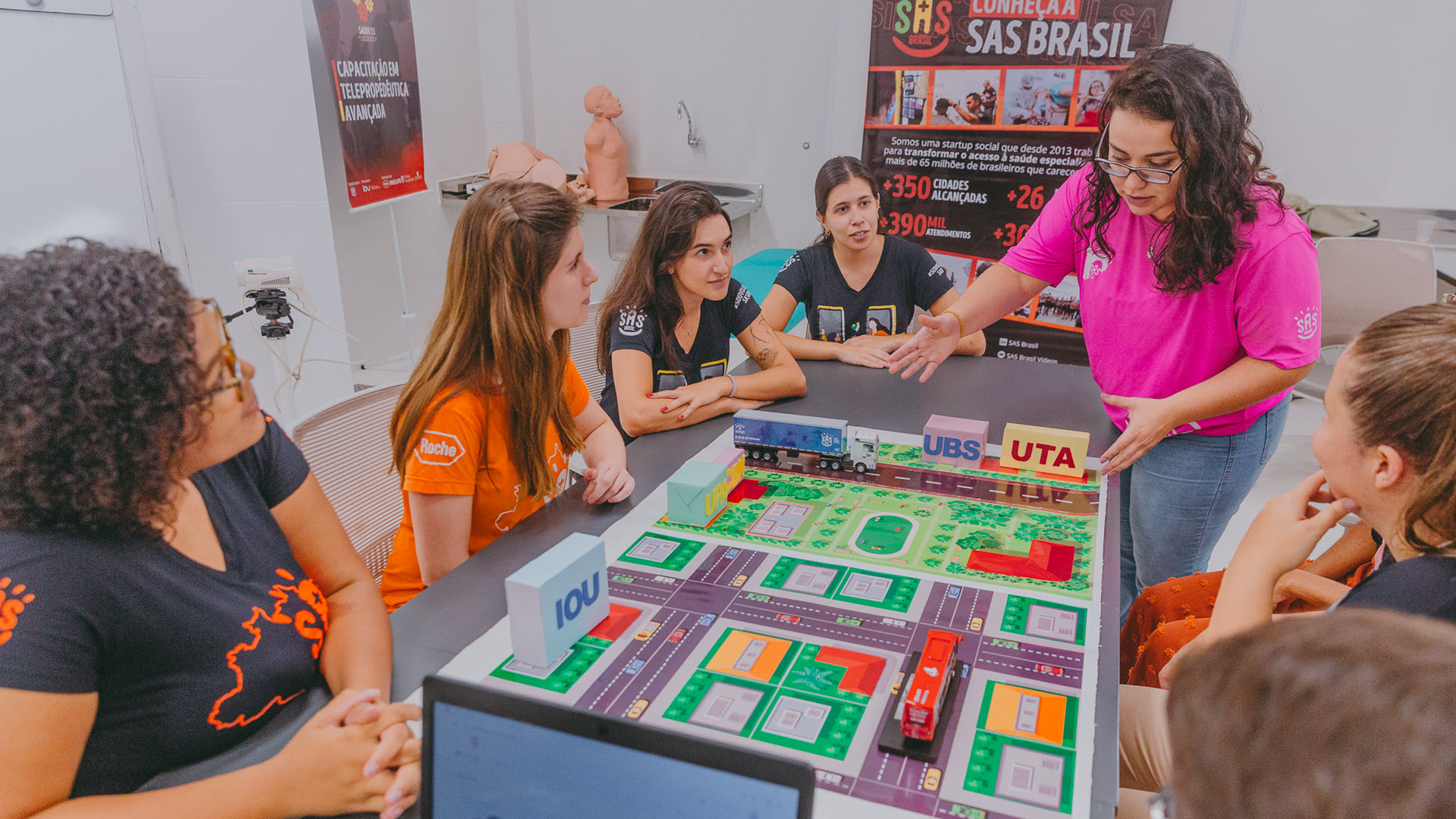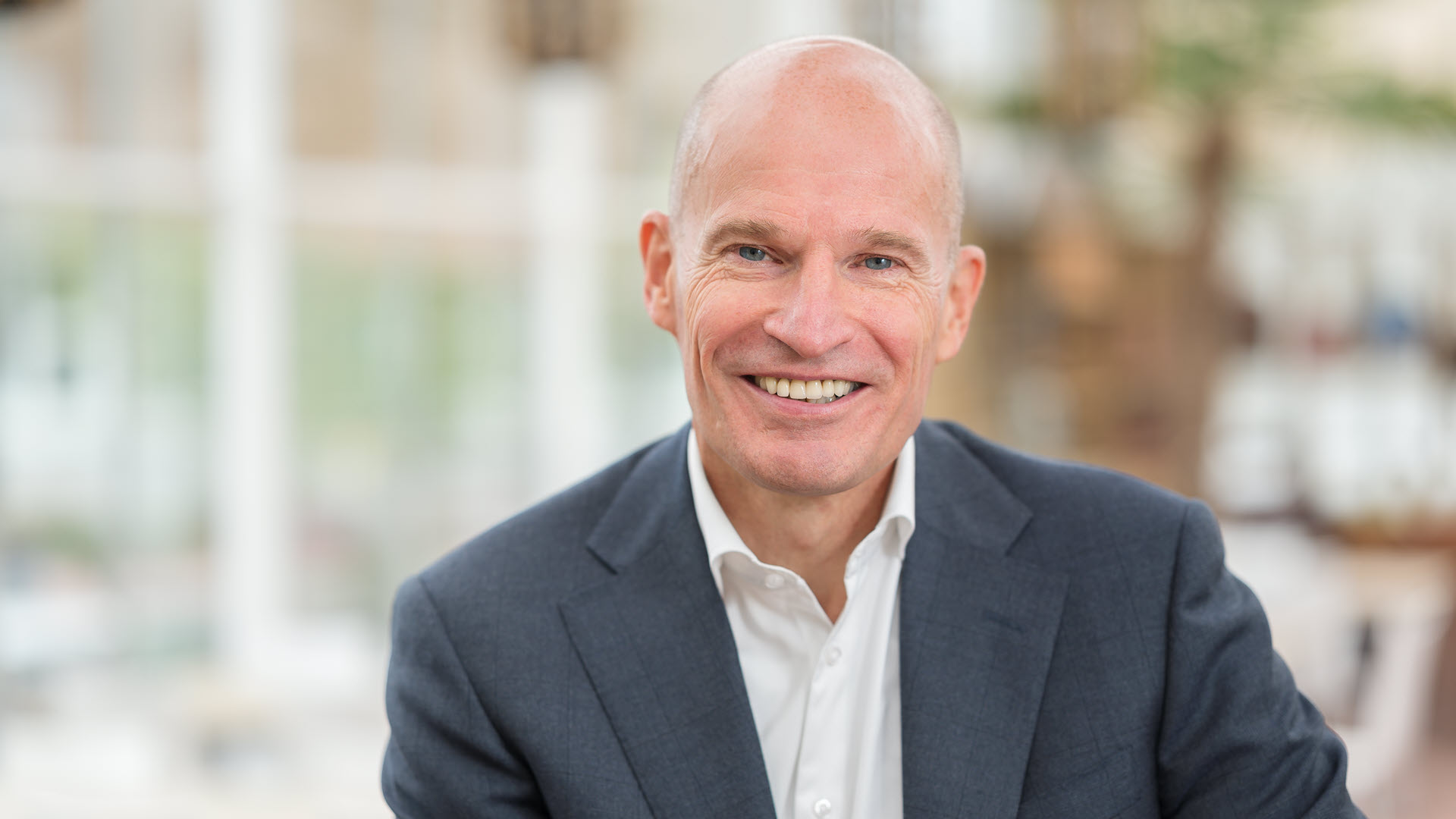"By providing our first students with innovative tools and training, we are unlocking their potential to become skilled health workers capable of delivering specialized care,” said Sabine Zink, CEO of SAS Brasil. “Moreover, SAS Brasil’s Living Lab can serve as a 'sandbox' for testing new technologies and putting research into practice, potentially advocating for policy changes to benefit primary healthcare. This allows us to address healthcare gaps in remote communities, ensuring that high-quality services are accessible regardless of geography."
Building on a successful partnership
In an initial collaboration, Philips Foundation, Philips Brazil and SAS Brasil partnered in deploying four specialized telehealth centers to deliver quality healthcare to remote areas. These centers, initially aimed to handle 19K appointments, exceeded expectations by providing 29K exams and consultations, both online and in person.
Today, three of the centers are fully operated by public health nurses, highlighting the sustainable approach of the initiative, which prioritizes local capacity building and ensures ongoing access to specialized healthcare services in these remote regions.
“By empowering local health workers and providing specialized health services, they have delivered much-needed care to some of Brazil's most remote communities,” said Margot Cooijmans, Director of the Philips Foundation. “The success of this approach paved the way for further expansion in 2024, with an innovation lab where students are trained to operate life-saving technology, thereby extending access to diagnosis capabilities to even the most remote corners of the country.”
Alleviating communities impacted by the severe floods in Rio Grande do Sul
Aware of the impact of the severe floods in Rio Grande do Sul [4], Philips Foundation supported SAS Brasil in delivering crucial healthcare assistance to affected communities. The collaboration enables mobile health units with essential medical supplies to serve communities at primary healthcare facilities. The SAS Brasil team will also conduct and support telehealth consultations for mental health services for families affected by the floods.
“SAS Brasil has also distributed vital resources like fresh water, blankets, food, and will identify and assess new regions to ensure that areas that were most affected receive necessary care. By partnering with the local government, healthcare authorities, and volunteers, we aim to meet immediate and long-term healthcare needs, while rebuilding the healthcare infrastructure for future resilience," Sabine Zink added.
[1] WHO (2024). Health workforce
[2] Pan American Health Organization (2019). The burden of non-communicable diseases
[3] Pan American Health Organization (2022). Strides in maternal health mark PAHO’s impact in the Americas
[4] Folha de S. Paulo (2024). Rio Grande do Sul tragedy resulted in largest displacement of homes in Brazil in three decades
For further information, please contact:
Yannick Eshuijs
Philips Foundation
Tel.: +31 6 1852 6633
E-mail: yannick.eshuijs@philips.com
LinkedIn Profile
Ileana Carrasco
Philips Latin America
Tel.: +507 2828058
E-mail: ileana.carrasco@philips.com









